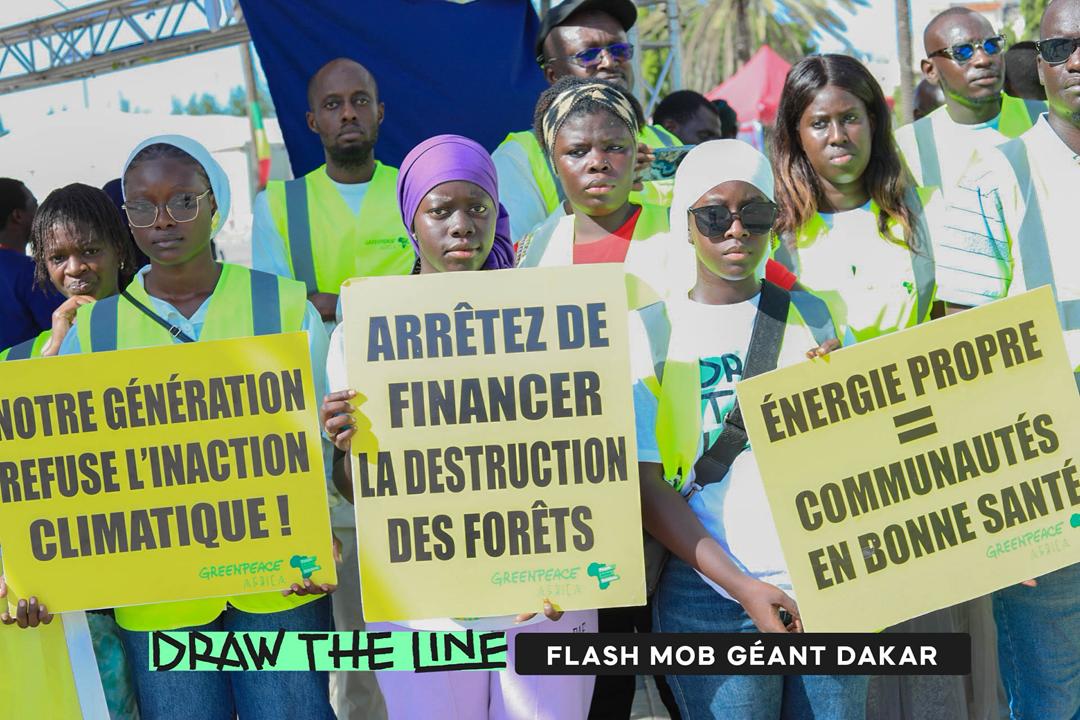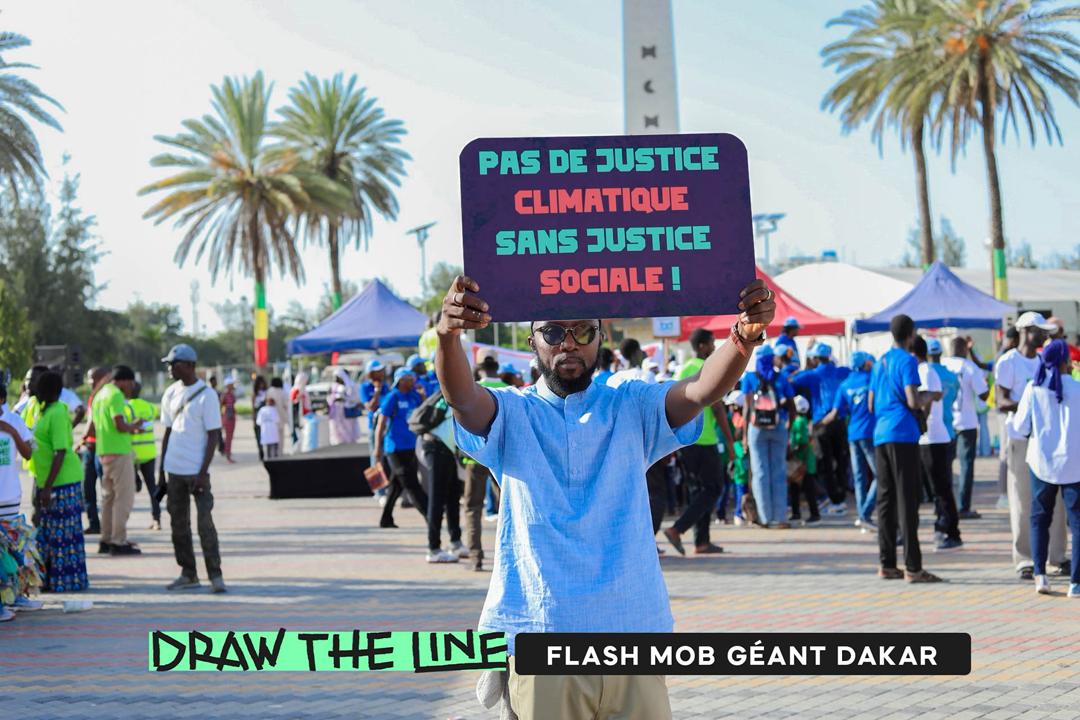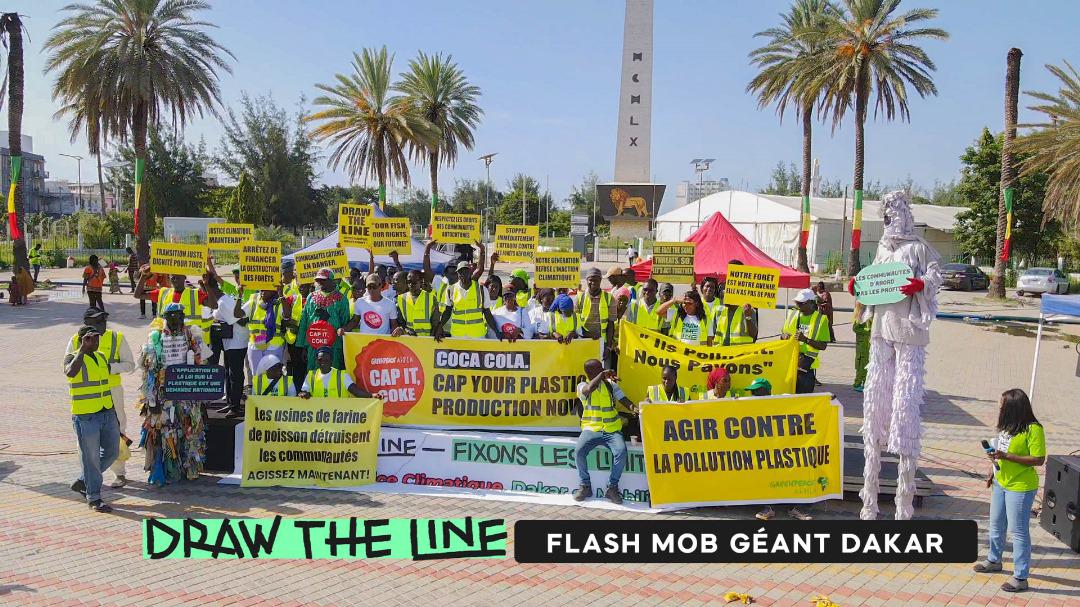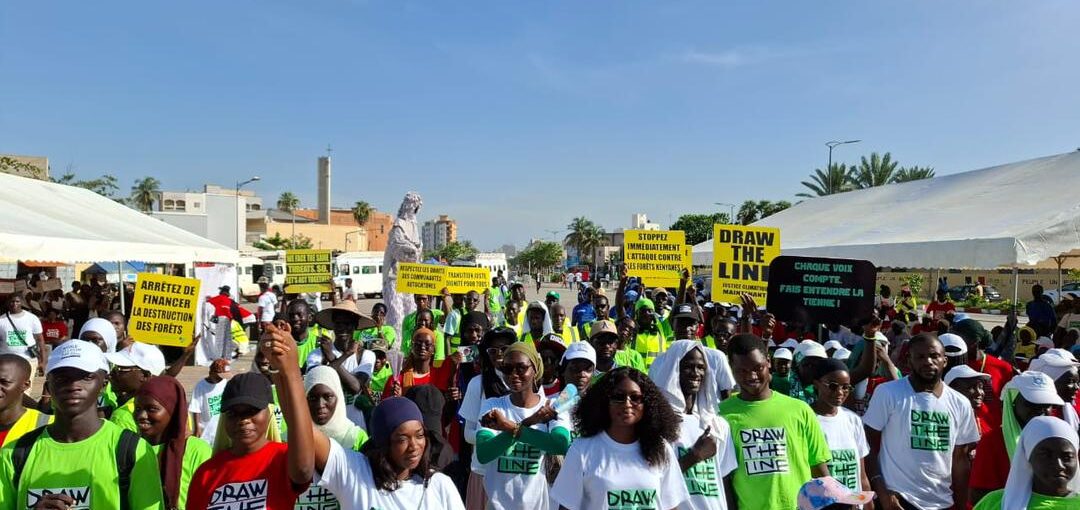By Jephiter Tsamwi
Dakar, Senegal- Hundreds of citizens, activists, and community representatives converged on the Place de la Nation in Dakar for a powerful Flash Mob under the global “Draw the Line” climate mobilization campaign, demanding urgent action to address the escalating climate crisis. The event, organized by Oxfam, 350.org, and the Senegalese Network of Climate Actors (RESAC), brought together youth groups, women’s associations, artists, civil society organizations, and international partners in a display of unity for climate justice.
The Flash Mob formed part of activities under the African Activists for Climate Justice (AACJ) project, which continues to support innovative, people-cantered actions that amplify the voices of women, youth, and frontline communities across Africa. By integrating art, activism, and community mobilization, the event highlighted AACJ’s commitment to strengthening grassroots movements and connecting local struggles to continental and global advocacy spaces.

Flash Mob Draw The Line Climate…
The action combined music, visual performances, slogans, and banners, culminating in a collective declaration calling for governments and international institutions to prioritize vulnerable communities in climate decision-making. Organizers emphasized that the event’s central aim was to raise awareness of the climate emergency, amplify local voices, and influence policy discussions ahead of upcoming international negotiations, including COP30.
Speaking at the mobilization, the Social Justice Program Manager of Oxfam au Sénégal issued a rallying call for resilience and action:
“If our land no longer sustains us, we must be stronger than despair, we must shape a future by our own hands.”
His words drew loud applause from participants and underscored the urgency of ensuring that African voices are not sidelined in global climate forums.
Africa at the Frontlines of the Climate Crisis
The event highlighted the severe and disproportionate impacts of climate change on Africa. Despite contributing only 2–3 percent of global greenhouse gas emissions, the continent faces some of the world’s most extreme climate vulnerabilities.
- Seventeen of the 20 countries most threatened by climate change are in Africa, with governments already forced to spend between 2 and 9 percent of their national budgets responding to climate impacts
- Africa’s average temperatures have risen by around 0.7°C in recent decades, with some regions warming faster than the global average, driving devastating droughts, floods, and heat extremes
- The United Nations Environment Programme (UNEP) stresses that Africa is “the continent most exposed to climate risks,” yet receives only a fraction of global adaptation finance

From Symbol to Advocacy
Head of the Program Management Unit (PMU) within AACJ, Grace Alupo, said the Flash Mob was not only a symbolic act but also a strategic advocacy tool.
“By occupying the Place de la Nation, a landmark of collective memory in Dakar, citizens sent a clear signal to national leaders and international negotiators that climate inaction is no longer acceptable, she said.
The youths also echoed similar sentiments, emphasising that their voices matter in the quest to achieve the objectives of the climate justice movement.
“This is about making sure that our realities, disappearing coastlines, ruined harvests, and forced migration, are not invisible in the global debate,” said one youth activist participating in the mobilization.
The event was covered by local and international media, with videos, photographs, and testimonies shared widely on social media under official campaign hashtags. Organizers said this visibility would ensure Senegal’s climate demands reach beyond national borders, resonating in regional and global spaces.
Next Steps
Following the mobilization, Oxfam, 350.org, and RESAC pledged to compile a community declaration from the event and circulate it among government officials, international institutions, and negotiators preparing for COP30. They also announced plans to support grassroots climate initiatives, from women’s cooperatives adopting rainwater harvesting to youth groups piloting renewable energy projects, as part of a broader push to strengthen community resilience.
Participants agreed that the Flash Mob was only the beginning of a longer campaign for climate justice in Senegal and across West Africa.

A Call That Cannot Be Ignored
As the sun set on Place de la Nation, the voices of hundreds rang out in unison, demanding fairness, urgency, and recognition. For many, the Flash Mob was both an act of resistance and a moment of hope; a reminder that communities most affected by climate change are ready to speak for themselves and will not be silent. With Africa at the frontline of the crisis, the call from Dakar was clear: climate justice is not optional, but it is a necessity.

